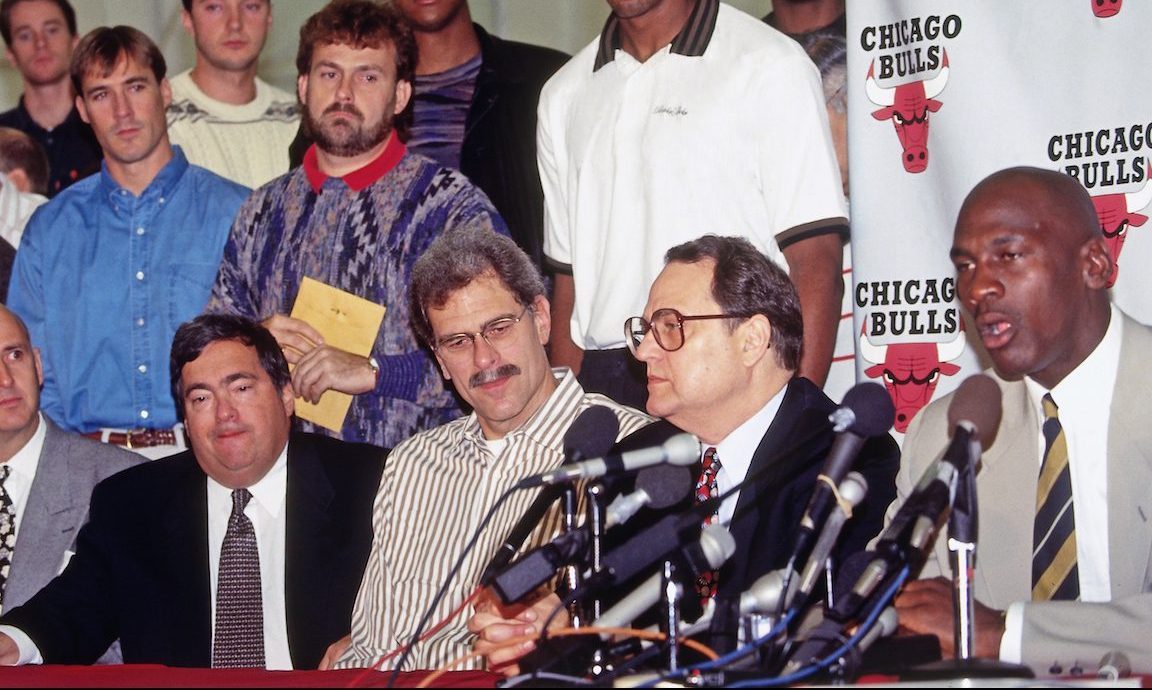The Last Dance Review: Episode 1 and 2 Takeaways
- Apr 21, 2020
- BASKETBALL
- Iggy Gonzales

"The Last Dance" was originally set to air later this year but thanks to the 2019 Novel Coronavirus Disease (COVID-19) pandemic which shut down basketball, the producers decided to release it earlier as a treat to millions of basketball fans who are currently stuck at home. The first two episodes of the 10-episode series are mind-blowing and watching them in just one sitting won't be enough to understand what was really going during the Chicago Bulls' final championship run with the legendary Michael Jordan in the 1997-1998 season of the National Basketball Association (NBA).
The title of the series, "The Last Dance" came from the title of the team handbook that was given to the team by then Coach Phil Jackson. The cover of that handbook had the words "The Last Dance" laminated on it. And that was also a coincidence considering the fact that that season was Phil Jackson's final run with the Bulls.
In the first episode of the series, one of the many talking points was how the 1997-1998 season turned out to be the final championship run of Chicago and that pointed towards one man: Jerry Krause, the general manager of the Bulls.
The late Jerry Krause was initially credited for assembling what would go down as one of the most unstoppable teams in the history of the game as the Bulls realized early in the MJ era that Jordan alone cannot carry the team to the promised land even though he scored a playoff-record 63 points against the mighty Boston Celtics of Larry Bird. He then started getting the pieces he thought would be a perfect fit alongside #23 like Horace Grant and Scottie Pippen. But what cemented Krause's status as a "great" general manager was the trade involving Michael Jordan's best friend on that squad, Charles Oakley. Oakley was sent packing for New York in exchange for Bill Cartwright.
According to Krause, the Bulls needed a legitimate center and Bill Cartwright fitted the bill perfectly as he went on to become the Bulls' main man in the middle against the Knicks' very own, Patrick Ewing as the New York Knicks became the Bulls' archrivals in the Eastern Conference during the early 90s. In that essence, Krause was indeed the reason why Chicago became dominant at that point in time.
However, Krause's stint as general manager of the Bulls wasn't all happy days as he endured a strained relationship with Michael Jordan. And yes, he had a very strained relationship with Scottie Pippen. Even in the Oakley-Cartwright swap, Jordan despised the swap not just because of the fact that his buddy was traded but because of the fact that he had to learn of the trade on TV. And what was cruel about it was the fact that Jordan and Oakley were together on a plane when the trade went down.
Krause did what he did and for better or worse, the things that Krause did, did benefit the Bulls.
If there's one important talking point that the first two episodes of "The Last Dance", it's how underappreciated Scottie Pippen was.
And imagine this: Jerry Krause even considered trading Scottie Pippen right after the 1996-1997 season when Chicago won their fifth NBA championship. What made Pippen's situation worse was the fact that he got injured during the playoffs of 1997 and he didn't undergo surgery right away. And dialing back to 1991, Pippen signed a seven-year contract that was worth 18 million US Dollars. He was the Bulls' Robin to Jordan's Batman and he was arguably the best two-way player the league has seen and yet, he was the sixth highest-paid Bull and the 122nd highest-paid player in the league at that time. Many pundits believed back then that talent-wise, Scottie Pippen was cable of leading the Bulls the same way MJ did. Just imagine if Jerry Krause and the rest of the front office at that time did trade Scottie Pippen prior to the 1997-1998 season, it would have been a different story. His Airness said, "Whenever they speak Michael Jordan, they should speak Scottie Pippen,"
But perhaps the biggest takeaway of the first two episodes of "The Last Dance" was that Michael Jordan is arguably the greatest player to step into a basketball court. He didn't just change Chicago's fortune from the moment he entered the league. He didn't just change how the game was played. Michael Jordan exemplified greatness by letting his game and only his game do the talking. As Pat Riley said it, "He proved right out of the gates that there was none other like him," And we haven't seen anything like Michael Jordan since Michael Jordan retired. For good.
Photo is from InsideHook
